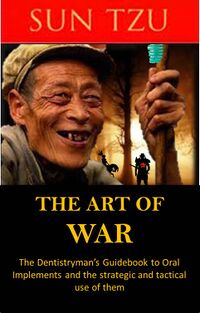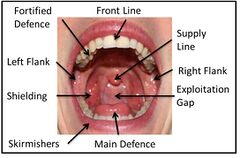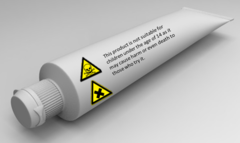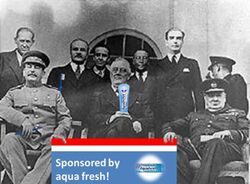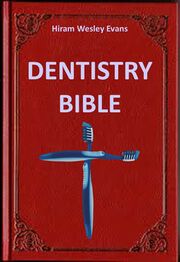The Art of War
The Art of War, professionally referred to as The Art of Dentistry, is a book written 2000 years ago by a Chinese Dentist, Sun Tzu. Sun Tzu was one of the first people in history to associate sharp instruments with healing teeth and so discovered the first basic rule of Dentistry. It is also the general name given to the practice of Dentistry in its purest form, such as to promote research and development of technology in the dentistry area. Since then the Art of War has continued to develop, leading Carl von Clausewitz to write his book On Dentistry (translated in to many other languages as On War), in the mid nineteenth century to update the dentistry reference books after the invention of the steel wire toothbrush, which of course required different handling technique to the copper wire toothbrush from before.
The Art of War is now practised and recognised, in modern times, all over the World, such as in the Middle East where it is proliferated enthusiastically. It specialises in rendering people unable to eat and then charging lots of cash for false teeth replacements. The Royal Society of Dentistry itself enforces the practice across Britain and helps develop the skills required for dentistry at an early age in the playground through the bullies of the school.
Skills required to become a dentist
A child needs to grasp the skills required for dentistry at the earliest age possible before a child matures enough to look at the army as an alternative career. A fascination of carpentry tools and a knowledge about the uses of pillar drills and scalpels needs to be drilled into the child. A psychopathic mind is preferable or at least someone who fails to understand that pain hurts people and believes that money is all there is to life.
Famous dentists have most usually always come from backgrounds of heavy child abuse from blunt and sharp instruments alike. Training like this is ensured to mean that the dentist not only learns how to perform an operation from a very young age but also enjoy being at medical school for most of his young adulthood.
The 13 principles
In the original book "The Art of War" the tactics and methods involved in dentistry are split into 13 chapters (one for each year of dentistry school) on the subject.
Chapter 1: Laying Instruments
“To perform a decisive operation first the dentist must lay out his instruments.”
In the first chapter of the book Sun Tzu describes the best way to prepare to deal with an ulcer or a rotten tooth. He points out that the sharper an instrument is the more potential it has to resolve the patient's problems, "The teeth are the strongest parts of the body and can withstand any attack. The sharper the tool you use the better service you will render unto your victim. especially when you stick it in his mouth." He suggests that all the tools you have should be taken into the dentistry clinic with you in case the victim throws a vicious surprise at you like declaring that there are two mouth ulcers instead of one.
Sun Tzu heralds planning as the most important part of the operation. "Planning ahead is more important than the actual surgery. A dentists clinic is just like an operating room only without the anaesthetic. Shoddy preparation may result in your patient suffering great pain, or perhaps not enough pain. In either case the patient might flee without paying."
Chapter 2:Wages
“Wages are the only thing that drives a dentist. That and the constant harmonious screams of his victims.”
Sun Tzu puts forward the notion that a good torture service requires a big salary. Wearing a white coat and a pair of safety goggles are essential. Firstly it sets the impression that the dentist is highly qualified and secondly it is a form of defence in case blood fires back out at him. The book states that dentists usually earn a bit more than doctors so this should be used as guidance to the dentists salary.
Chapter 3:Planning the Attack
“Attack when you think you are ready. It is preferable to catch the patient off guard so ask him how work was today.”
The attack should always be divided into three parts: an end, a start and a middle. The start of the attack is used to prod the patient in a place he wasn't expecting. "My friend Tzou Chee always used a scalpel to penetrate the right flank and swivel round to the rear. A tactical lesson I found to be invaluable." The middle of the attack is where the full blow is delivered, "Usually this will include shoving a weird tube into your mouth that releases an artificial strawberry tasting liquid onto the gums." The end of the attack is where the break through occurs, "The patient will then swallow the liquid and gag, as though to vomit. At this moment you provide a plastic cup to spit in and the bill."
Sun Tzu dictates that these steps need to be planned out so that they can be pulled off in a matter of seconds without the victim realising for the full effect. "It is the same ending that is achieved through a sleight of hand magic trick," he says.
Chapter 4:Depositaries and Depositories
“Do not be confused about the two almost identical words. The way I remember is that one has "Tory" in but the other does not have "Liberal" in so the terms can't be referring to opposing political parties.”
These two words are so common in dental practice that Sun Tzu decided to have a whole dedicated chapter for them. Also he desperately needed another chapter otherwise there would be 12 chapters, an unlucky number in China.
"Depositary" refers to the amount of money the patient pays you with before the operation. The payment is an attempt to taunt the dentist, saying, "I bet you can't inflict much pain on me even if I do pay you a few thousand pounds." Depositories can easily be spent by dentists before an operation as dentists never make mistakes. Even if a mistake occurred then they'd have enough money spare to give the same amount back if an operation is too painless and fails.
"Depository" refers to the mess left behind by the patient once they have spat up blood and parts of gums mixed with saliva and dentistry paste all over the floor. In most cases the dentist needn't worry about this as the nurses in the rear-lines come forward to clear it up. A slippery floor can impede an operation, which is why, like at a butchers, dentistry clinics have sawdust spread out on the floor.
Chapter 5:Forces and Powertools
“Nearly all men can stand adversity, but if you want to test how manly he is, give him a powertool.”
Dentistry is not for wimpish surgeons. Dentists don't just use scalpels and surgeon's knives but also pillar drills and laser cutters. The phrase "Power is money" comes to shine in this chapter as the more electrical appliances a dentist uses, the higher chance they have of passing their dental exam. Tools in dentistry also require a lot of force behind them to drive the tool smoothly (but not cleanly) into the patient's gum line or tooth. The immense electrical power required to keep an dental operation's worth of powertools running has led to dental clinics being turned into labs to generate fusion power.
Chapter 6:Hallucinations and Strong drugs
“Drugs are the key to a happy operation.”
The patient must not pass out during the operation so dentists must be extremely careful when administering drugs, "It is merely a device to make the patient too crazed to realise what's happening." Strong drugs, such as can be bought from GlaxoSmithKline, can easily be used to make a patient hallucinate that he is in a field full of daffodils, with the wind blowing through them and the dentist standing there dressed like a mushroom, ready to eat and then the patient begins to gnaw on the dentist's leg, to which the dentist responds with a squeeze of the hot glue gun trigger as the nozzle touches his tongue and the patient reals back in pain to come to his senses.
Chapter 7:Maneuvering
“The mouth presents one of the smallest cavities that Man has had to manoeuvre in and yet it is these maneuvers that win the battle between patient and dentist.”
This chapter addresses the command structure and response involved in manoeuvring tools in an operation. The chapter is also commonly ripped out the book and used as extra paper to soak up the blood that is now spurting out from the patient's nostrils as well. "While pillar drills are long-ranged weapons that don't need to advance, they still need to be angled and everything down to a scalpel needs to be commanded into position."
If a dentist does become stuck while thinking about how to manoeuvre a toothpick near a build-up of plaque then the book recommends that the dentist buys time by getting out the tube that sucks all the moisture out the patients mouth. This distracts the patient who tries to gasp for liquid and begins salivating.
Chapter 8:Tic tacs
“Never underestimate the power of product placement in 2000 year old books.”
Tic tacs are said by the book to be Sun Tzu's favourite method of seducing a patient before an operation. Good tic tacs always halt the patient and make him question "Are there any green tic tacs?" At this very moment the dentist ought to swivel round on his chair and press the button that makes the patient's chair fold back, while manically laughing and exclaiming, "Why of course not! No one gets away with a lime flavoured mouth in my clinic!" Tic tacs can also be deployed when the dentist needs to make his chemical paste taste even sweeter, by crushing tic tacs and mixing them into the paste.
Chapter 9:Appointments in March
“Beware the Ides of March...or you could just charge extra.”
Suz Tzu claims in his Ninth chapter that the 2nd month of the year, March (according to the Chinese calendar of the time) was the most annoying time of the year to operate on a patient. "Everything is set against you: fate, the Gods, your wife...she's usually left you by then...it was like that for me...all those months ago...Never again!"
March is the time of year when nothing much happens and it is raining and so the patient attempts to defeat the dentist by using boredom to his advantage. The book explains how the dentist can deal with this by always staying alert and excited and never getting too bored or tired to carry out an operation. "Phone up people and pretend that they have missed their appointment. Read books on dentistry. Read this book on dentistry only two dollar ninety-nine. You 'wanna' buy book on dentistry? Two dollar ninety-nine."
Chapter 10:Tehran
“Even dental practice is dictated by rules and these rules must be obeyed or you yourself may find yourself at the receiving end of a dental tooth pick.”
In the original writings of The Art of War, Sun Tzu mentions the "Tyrhing Conference" in his tenth chapter. Unfortunately all records have been lost of this military conference since then and so modern translations refer to the "Tehran Conference" of 1943. At the conference of Tehran three great world leaders: Churchill, Roosevelt and Stalin met to most-urgently address the dental situation in the three allied countries. Britain had almost run out of toothpaste and had no mouth wash left for the Free French, Russia had almost run out of metal wire for their tooth brushes and the USA's public were demanding 100% perfect teeth in the population.
Sun Tzu points out that it is times like these when fellow dentists must cooperate despite their differences for the greater cause of implementing torture on the general public. Stalin had his mind set on introducing compulsory dental clinics all over Poland as he was fed up with the way Polish people looked and Roosevelt was determined to stop him so that he could laugh at the Polish people. Sun Tzu points out that though Stalin's ideals would allow for a spread of dentistry practice, Roosevelt's ideals would lead to profit for the USA in the long run as all the Polish would have to fly over to the USA for their dental treatment. "It is times like these that one has to make a sacrifice. This is not hard for a dentist as he has already given away life and soul at dentistry school."
Chapter 11:The Nine Dental Diseases
“Diseases are your cover, your deception. This is why the people come to you for your help. Do not give away your real intention of dental harrasement.”
In the eleventh chapter of the book 9 diseases are listed as excuses for a dentist to "treat" someone. They are as follows:
- Rotten tooth - This does have some evidence behind the claim, especially if the patient's tooth is black (although that may be due to smoking). A dentist should use this disease if a patient complains that one of their teeth might be wobbly or stinging a bit.
- Abscess - It may look like a simple mouth ulcer to the patient however a dentist can disturb the patient further by pointing out that it is actually a bacterial infection of gigantic proportion that is spreading all over the patient's face and yet only shows on that one particular spot. If it is not dealt with soon, the patient's brain might dysfunction more than usual.
- Not brushing your teeth enough - This excuse needs no treatment from the dentist unless serious (then refer to disease 1) but does give great pleasure for the dentist to watch the patient's gums seep with blood as the patient attempts desperately to clean his teeth five minutes before the follow-up appointment. The daily recommendation for teeth brushing is 6 times a day, one more than Muslims pray to Allah because kissing the floor can get a lot of dirt stuck behind the molars.
- Crooked teeth - This is a great money grabber as the dentist can easily do a follow up to one of the most expensive dental treatments: braces.
- Poor teeth - Another expensive treatment. Sun Tzu says that there is no need to explain how the teeth are "poor" however the simple solution is for the patient to get a crown.
- Damaged gums - Gums bleed when someone doesn't clean their teeth enough. The remedy for this could be major surgery costing up to £1300.
- Periodontal Gum Disease - Bacteria cause the gums to swell a bit. The simple solution for the dentist is for them to provide the patient with a full set of false gums. To put in the false gums, the patients teeth will have to be removed and so a set of false teeth will also need to be purchased by the patient.
- Tonsillitis - Even though the tonsils have not much to do with the teeth it sits in disputed territory between the mouth and the throat. If the patient falls for the trick that it's in the mouth then a dentist can perform an operation on it. If the patient believes that the tonsils are part of the throat then the dentist can bore the patient with a long-winded speech about how it is part of the mouth and then rip them out when the patient is too dazed to react.
- That looks a bit sore, it's your fault for not looking after your teeth - Though this is not a disease, it works as a last ditch excuse for even the poorest and worst of dentists to squeeze a few thousand pounds out of the patient.
Chapter 12:Attack with Lasers
“Time to see the full firepower of this fully operational dental station. Commander, fire at Will's tooth!”
At the time of Sun Tzu, the Chinese had just invented gunpowder and so lasers had only just come into use. He was a great believer in modernising dentistry as technology moved on and suggested that dentists should employ new tactics such as lasers into their methods to help them in their dental exploits.
Chapter 13:The Use of Spikes
“There is no greater sight worth seeing than seeing the tooth pick gently bore into a toothless prick.”
As well as embracing the new, The Art of War tells readers to remember the old methods. A spike still works perfectly and does the same job as a laser, only it takes longer so there is more screaming and more force required (see Chapter 5). "My father, who was a great dentist, once said to me. Make sure you see eye to eye with the patient and make sure he sees eye to pointy end with your spike," Sun Tzu writes.
Criticism
Sun Tzu's book met little criticism from anyone bar extremist groups. It is still used by dentistry scholars today and is included in the European Union Dentistry Standards publication almost word for word.
One of the extremists who attacked Sun Tzu's book and ideals was Hiram Wesley Evans, a prominent Christian dentist in the 1930s. He thought that Sun Tzu's methods were too equal and not harsh enough. He also pointed out the lack of explanation for the causes of teeth rotting. Therefore in 1934, Wesley published the book Dentistry Bible, which was supposed to be an up-to-date version of dentistry practice. Many people, however, chose to ignore Wesley's book thanks to his association with the KKK, a backward circus society from Texas. Dentists instead choose to refer to Clausewitz's book, On Dentistry.
Buddhist pacifists too take up quarrel with Sun Tzu's writings. They believe in treating dentistry not through "medication" but through "meditation." A reason behind the choice is that Buddhist live in a region famous for tea and "meditation" contains more "t" than "medication." Dental meditation relaxingly and soothingly helps your teeth and its effects are more apparent than normal dentistry, notably that there are no effects. This is because dental meditation can't be experienced by a mere human sense but instead experienced by inhaling many pharmaceuticals prevalent among the Buddhist community. This allows the teeth to be healed in a spiritual way.
Application outside of Dentistry
The Art of War was found to be one of the main sources that the regulations for prisoner and guard relationships were based on at Guantanamo Bay. US government officials ordered every senior military officer to read the book to "broaden their knowledge of alternative warfare." A statement given out by the US government claimed later that it was "regrettable" that the prison staff at had got hold of it and that the order was "not intended for prisons as well however due to the high number of secret service military officers members posted at Guantanamo Bay, the book was heard about and put to use."
Prisoners also got hold of the book which caused a series of upstarts inside the prison. These resulted in numerous deaths, extended isolation periods for perpetrators and a Collector's Edition Guantanamo Bay Prisoner's Dismembered Teeth box set being sold at Toys-R-Us.
See Also
| Featured version: 8 April 2014 | |
| This article has been featured on the main page. — You can vote for or nominate your favourite articles at Uncyclopedia:VFH. | |
